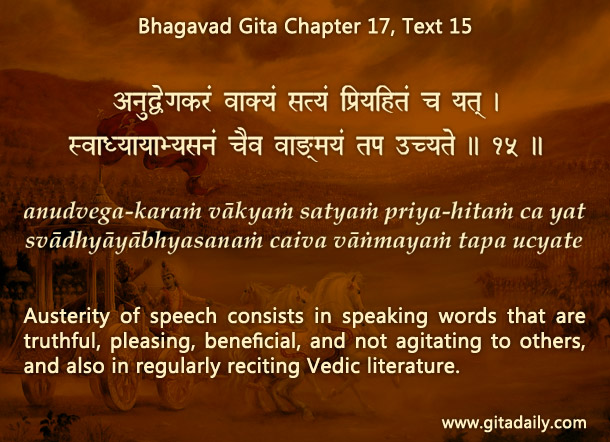Whenever we share a spiritual message with others, we may naturally feel inspired to emphasize the things that inspire us the most. Such an emphasis can be productive if it brings authenticity to our speaking, which happens especially if we have personally benefited from applying those principles and have undergone a positive transformation that others can see. However, that same emphasis can also be counterproductive if it makes us seem narrow-minded and exclusivist, which happens when we start stressing how the teachings and teachers of our path are superior to those of other paths.
Will this perception of sectarianism arise even if we try to use objective criteria, such as appropriate scriptural quotes or sound logical points to convey the superiority of our teachers? Yes, even then because most people’s spiritual commitments are not based solely or even largely on such objective criteria. Their commitments arise from their own spiritual experiences, which are deeply subjective and can’t always be countered by any objective criteria.
That is why it’s essential to consider the potential consequences of emphasizing in public discourse the superiority of one’s teachers. If every communicator of a tradition’s wisdom constantly emphasizes the specific ways in which their tradition is superior, it can lead to not just controversy, but even animosity. Worse still, some overzealous followers of that tradition may use or abuse such an emphasis of their teachers to become fanatical in their interactions with nonbelievers. When exclusivism in thought degenerates into extremism in action, the results can be catastrophic, given that we already live in an increasingly polarized world with ever-easier access to ever-more destructive weapons.
To avoid such escalation, we need to recognize that not all the truths we cherish are appropriate to be communicated in all forums. Pertinently, the Bhagavad-gita (17.15) doesn’t reduce its guidelines for effective speaking to a mere one-point dictum: speak the truth. Far from it, it urges us to speak the truth in a way that is non-agitating at least and pleasing at best so that the result is beneficial for the audience.
Echoing and elaborating this theme, the philosopher-saint Bhaktivinoda Thakura writes: ‘But it is not proper to constantly propagate the controversial superiority of the teachers of one’s own country over those of another country although one may, nay one should, cherish such a belief in order to acquire steadiness in a faith of your own. But no good can be affected to the world by such quarrels.’ (Sri-Caitanya-Siksamritam, page 7)
Summary:
To communicate spiritual wisdom effectively, emphasize not how teachers of our tradition are superior to those of other traditions; emphasize how the tradition’s teachings can empower everyone to change for the better.
Think it over:
- While communicating spiritual wisdom, when can emphasizing the things that inspire us be productive? And when counterproductive?
- Amid such criteria, why may objective criteria not always be persuasive?
- How is the Gita’s guideline on effective speech holistic?
***
17.15: Austerity of speech consists in speaking words that are truthful, pleasing, beneficial, and not agitating to others, and also in regularly reciting Vedic literature.
Audio explanation of the article is here: https://gitadaily.substack.com/p/sensitivity-in-communicating-superiority

To know more about this verse, please click on the image

Leave A Comment